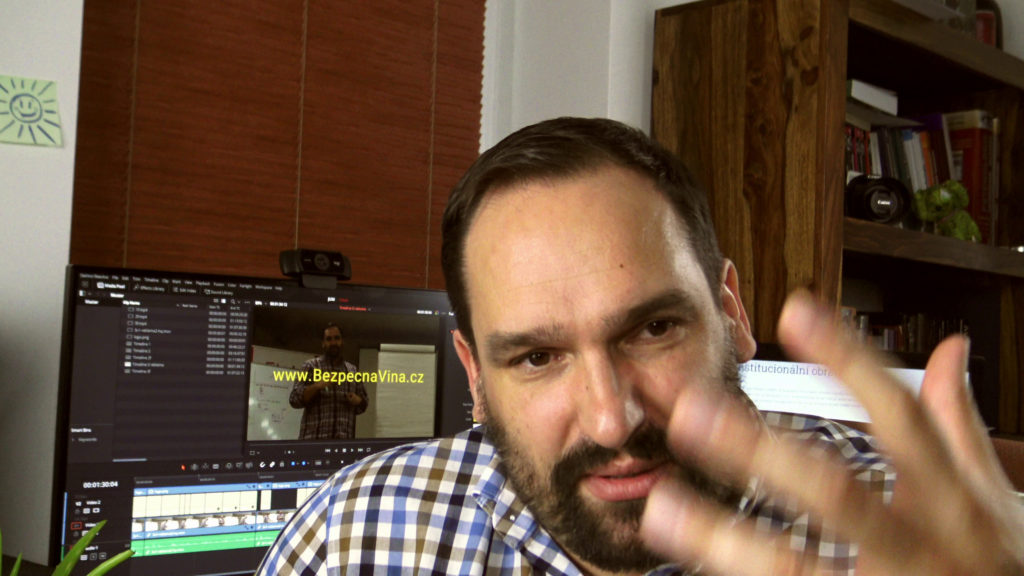No products in the cart.
Bezpečná vina
I’ve changed, so why don’t you give me one more chance ?!
Last week, I worked with a client who was in a typical situation that I encounter quite often in my practice. Imagine that you break up with a partner who manipulates you and pushes you down emotionally. When you’ve finally had enough, you tell him that you can no longer stay with him. They may have reactions that will confuse you.
They start to toe the line by being sweet and attentive, bringing you flowers, offering you favorite activities simply all the things you have been dreaming about for a time to happen. But then something confusing will happen. You won’t be sure that your reality is genuine. You will hear a phrase like, “I’ve changed, so why don’t you give me one last chance?”
Why do you feel so unpleasant hearing this positive news about a change you have been dreaming about for such a long time? What does this message mean? How to deal with it? You have already decided to leave the relationship, but now your ex-partner is putting in a huge effort in creating an image of change. He seems to be sincerely motivated to change. There’s an air of sincere guilt around him. But don’t get fooled. It is not guilt that drives him. It is a fear of losing you—the parasite’s fear of losing the host.
Let’s focus on the hidden meaning of the phrase, “I have changed, so why don’t you give me one last chance?”
Don’t forget you were perpetually subject to constant manipulation and blaming. You have been trying so many times to explain your situation and feelings. Your feelings were always ignored. These people do not operate in a way you would expect: trying to understand you, accepting responsibility, avoiding actions that hurt you, etc. The moment they say the magic phrase about a sudden immediate and inevitable change, you are being pushed to believe it. But the phrase has an entirely different hidden meaning.
Is anyone capable of such a DIY change of personality structure? Or is it merely evidence of narcissism when they present themselves with the best possible qualities? The only way how they can convince themselves about their miraculous change to good is by not having the ability to feel how they have been hurting you before. In other words: it’s a clear sign of an absence of empathy. It is just an ego-trip.
Any signs of self-assessment are always an indication of narcissism. People like this describe all their relationships from the first-person point of view: “I have something special with other people. I know that they like me. I’m doing only good for everyone. I have a good relationship with my child, and it is amazing, etc.”. It is in itself a sign of manipulation, immaturity, and distorted perception of relationships, thus 100% pure narcissism. In the texts that I usually analyze for my clients, there is never any sign of perceiving the view and feelings of the other party in the relationship. And if it is, then it ends with one big “but …”.
The second part of the phrase, “…why don’t you give me one last chance?” is also full of hidden meanings having unconscious effects on you. Here the speaker moves from narcissism to direct aggression (in the sense of the definition of general aggression that I teach in my course). You broke up with a partner because of the continuous blaming, and now they are trying to convince you that they have changed, and your perception is wrong, thus showing no respect to your previous experience. It is crucial to realize that changing the structure of one’s personality is not easy at all. DIY personality change is then obvious nonsense. Professional help is always required to achieve real behavior change because the cause was usually in early childhood when the aggressor didn’t have conditions for full emotional development. So saying “I have changed” is a statement of the impossible.
The question, “why don’t you give me one last chance?” is then a massive load of guilt. The following message is hiding behind it: “You are the wrong one. I have changed. Thus I am amazing. And you have nothing to complain about. Everybody gets it. You must be mad, not seeing my obvious change. It is your fault you are not giving me a chance I deserve.”
And the word “last” works as guilt amplification: “You are so bad, not giving me just one, tiny, negligible last little chance.” But what chance? You feel it’s a chance to rid you of the very last pieces of your ability to defend yourself.
It also sounds like addicts call for one last shot of his drug. And then, of course, he will be able to stop the addiction immediately. Would he?
You broke up with a manipulative partner, and now he is trying to convince you that destroying the relationship is entirely your fault because you won’t give him yet another last chance. If you can recognize manipulation and the kind of person you are dealing with, it will not surprise you to hear a phrase like that. But a person who is unable to identify manipulation and emotional blackmail will feel paralyzed and guilty.
In similar situations, your thoughts start spinning, the guilt sinks in, and you even might have trouble sleeping and other symptoms. That’s anxiety, and it is a standard reaction to such emotional abuse. To me, it is just proof of you being abused.
These anxieties are unpleasant and, in the long term, lead to more severe conditions like depression or panic attacks. A proven way to reduce them is to defend yourself actively. Safe Guilt mental martial art techniques give you the ability to recognize and stop any emotional and verbal abuse anytime and anywhere.
Brace yourself!



